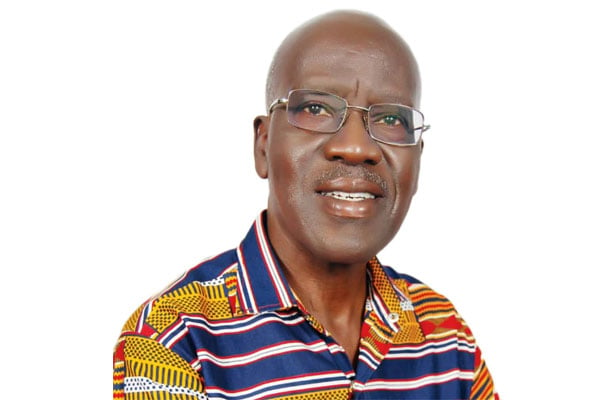Prime
Unknown god and intelligent design

Prof Timothy Wangusa
What you need to know:
- Athens was also the native city of some of the towering patriarchs of Greek intellectual enlightenment, including Socrates (c. 469-399 BC), Plato (c. 428-348 BC), and possibly the peerless poet Homer (c. 750 BC) much earlier on.
Can there be such an entity as ‘an Unknown God’ and such another one as ‘Intelligent Design’?
Well, my esteemed fellow traveller and perpetual explorer, these are two matters of utmost curiosity separated by 2,000 years, by the Atlantic Ocean, and by two intellectual climates.
Please come with me on a trans-chronometric journey of discovery into these respective matters, and I will thereafter gladly escort you to your starting-point back here.
Our first landing site: City of Athens in 51 AD.
There, before us, is a small group of walkers making their way from the main port of Faliro towards the city centre of Athens. At the head of the group is a man known as Paul, who was formerly Saul of Tarsus.
He has just come off the boat, and as he is waiting for his two fellow missionaries Silas and Timothy to join him from Macedonia, he goes around the city, discussing with the locals in the synagogue and the market. Of particular interest to him are the numerous statues in the streets to various gods.
And one of the statues is to ‘an Unknown God.’
Among the locals who listen to Paul are the indigenous ideologues known as epicureans (who believe in good eating and drinking) and stoics (who believe in virtuous bodily discipline).
These two groups are intrigued by Paul’s message (about a man who died and resurrected and will never die again!), and they take him to the high court (the Areopagus) to formally preach there in more details.
It is here that Paul takes up the opportunity to say: ‘Men of Athens! I see that in every way you are very religious. For, as I walked around and looked carefully at the objects of your worship, I found an altar with the inscription, “To an Unknown God”. Now, what you worship without knowing is what I am going to proclaim to you.’
My esteemed fellow traveller and perpetual explorer, here let us digress to remind ourselves that the city of Athens was at the very heart of Greek civilisation of more than 2,000 years and ‘the glory that was Greece’ (up to 146 BC, when of the Geek Empire was overthrown by the ascendant Roman Empire, which would in turn fall in 476 AD to invading Barbarians from the north!).
Athens was also the native city of some of the towering patriarchs of Greek intellectual enlightenment, including Socrates (c. 469-399 BC), Plato (c. 428-348 BC), and possibly the peerless poet Homer (c. 750 BC) much earlier on.
More immediately, among the statues that Paul has seen dotted all over the city is pre-eminently that of Pallas Athena, the goddess of wisdom and crafts, who not only takes her name from Athens but is also the resident goddess of the city ever since the beginnings of classical times.
Worthy of special note is the fact that whereas Greek imperial supremacy throughout the Mediterranean area ceased in 146 BC with the ascendency of the Roman Empire, Greek gods and goddesses have continued unabated, with the Romans merely ‘Romanising’ the names of some of the gods and goddesses: whereby Zeus the king of gods becomes Jupiter; his wife Hera becomes Juno; Aphrodite the goddess of love and valour becomes Venus; and Pallas Athena becomes Minerva.
It is with the man-made Pallas Athena at the back of his mind, and ‘the Unknown God’ in the forefront of his mind, that Paul launches his address at the high court.
In summary, he declares that ‘the Unknown God’ is the one and only living God, who is not made by us, but is the one who made us and the entire infinite cosmos.
My fellow perpetual explorer, at this point let us postpone to next week our trip to our second site: New York of ‘Intelligent Design’.
Prof Timothy Wangusa is a poet and novelist. [email protected]



